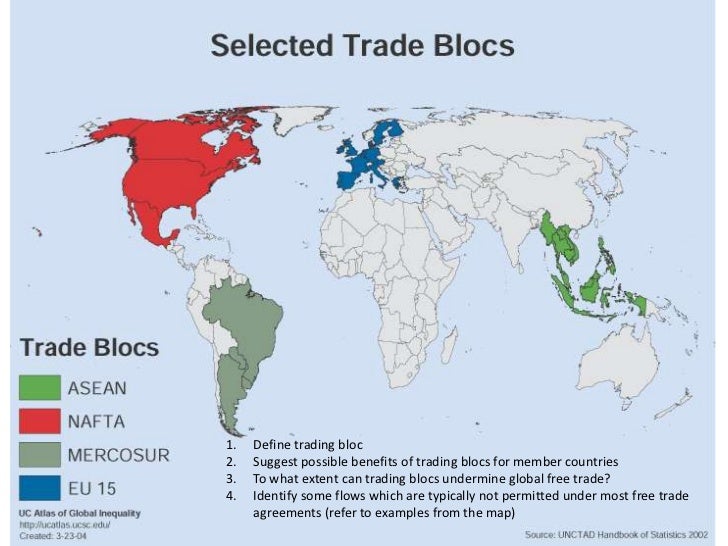
This item may be available elsewhere in EconPapers: Search for items with the same title.
#REGIONAL TRADING BLOCS FREE#
In conclusion, Frankel proposes several policy prescriptions for pursuing partial regional liberalization among blocs as a stepping stone toward global free trade.Ĭitations: View citations in EconPapers (660) Track citations by RSS feed Frankel's study also assesses the political and economic dimensions of regionalization and its implications for world economic prospects and public policy. Over the years, countries throughout the world have formed many regional trading blocs, and there is no doubt that they play an important role in the world. He considers regionalism at two levels: both the formal trading arrangements that are already in effect, and the broader continent-sized groupings that are under discussion (the Americas, Europe, and the Asia Pacific).

More balanced patterns of liberalization, however, give favorable outcomes. He concludes that a move to complete liberalization within blocs, with no reduction in barriers between blocs, would push the trading system into the supernatural zone of an excessive degree of regionalization. He then assesses whether regional blocs are "natural" or "supernatural"-that is, whether they enhance or reduce global welfare. Jeffrey Frankel shows through extensive empirical analysis that the new breed of preferential trade arrangements are indeed concentrating trade regionally. Others are hopeful that regional agreements will go beyond what was achieved in the Uruguay Round and instead become building blocks for further global liberalization and WTO rules in new areas. Some observers worry that the multilateral system may be fracturing into discriminatory regional blocs. The goal of regional integration and trade is not.

The rapid growth of regional trading relationships in Europe, Asia, and Latin America has raised policy concerns about their impact on excluded countries and on the global trading system. A group of nations in a geographic region undertaking regional integration is called a regional trading bloc. In Peterson Institute Press: All Books from Peterson Institute for International Economics A key hindrance to integration in Africa has been the multiplicity of regional economic communities with overlapping memberships, resulting in a duplication of efforts and waste of scarce. Regional Trading Blocs in the World Economic System


 0 kommentar(er)
0 kommentar(er)
